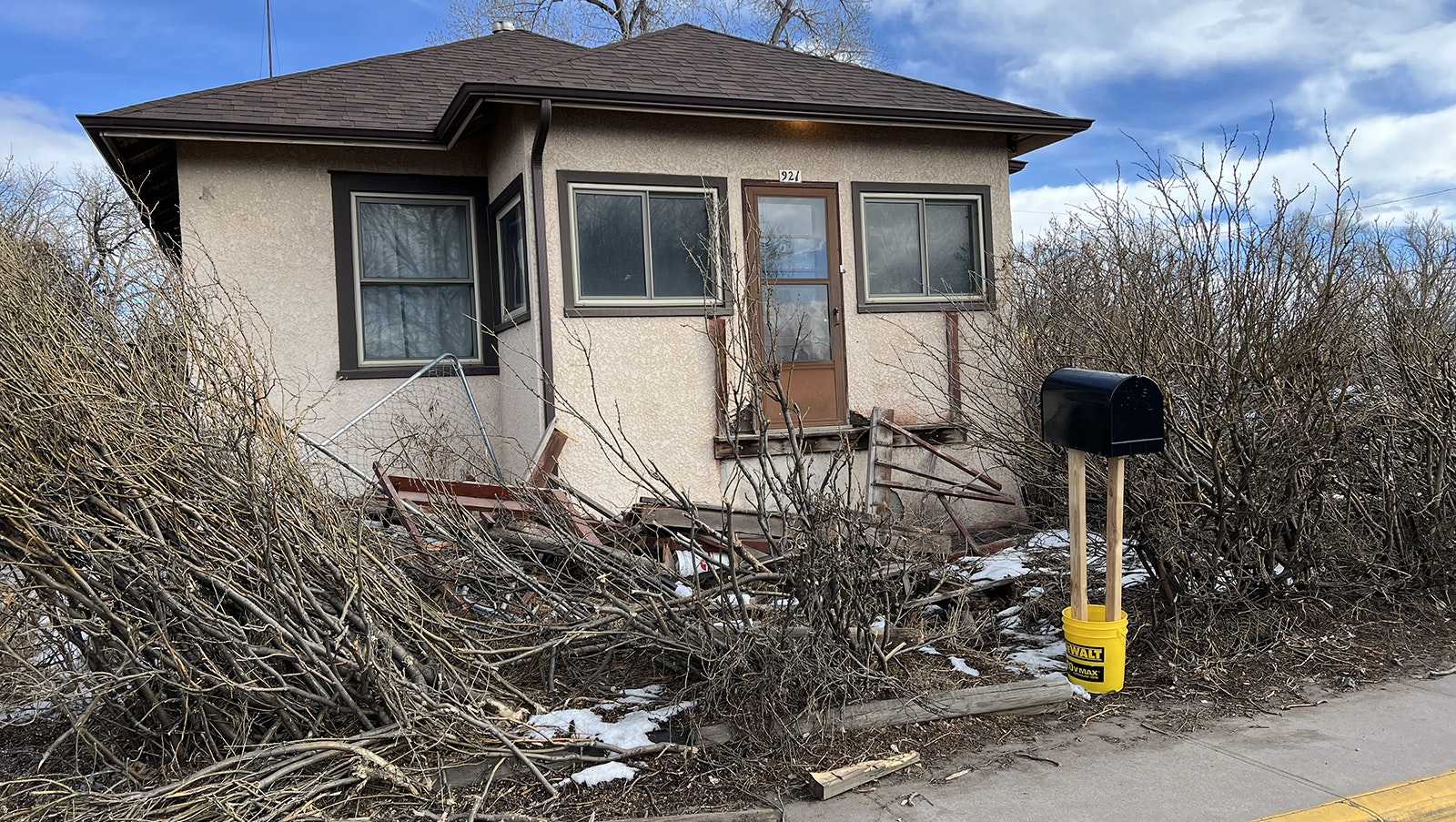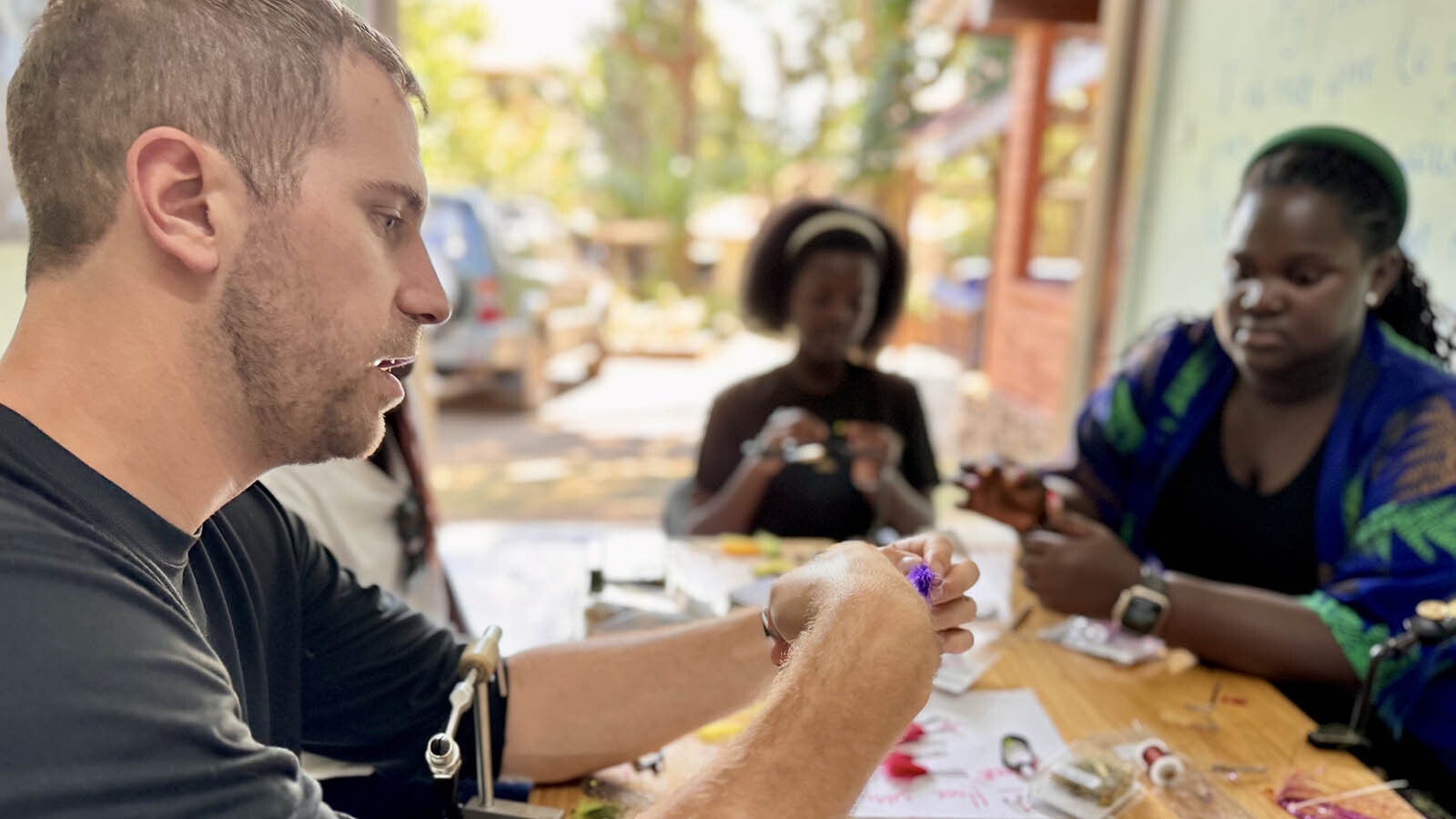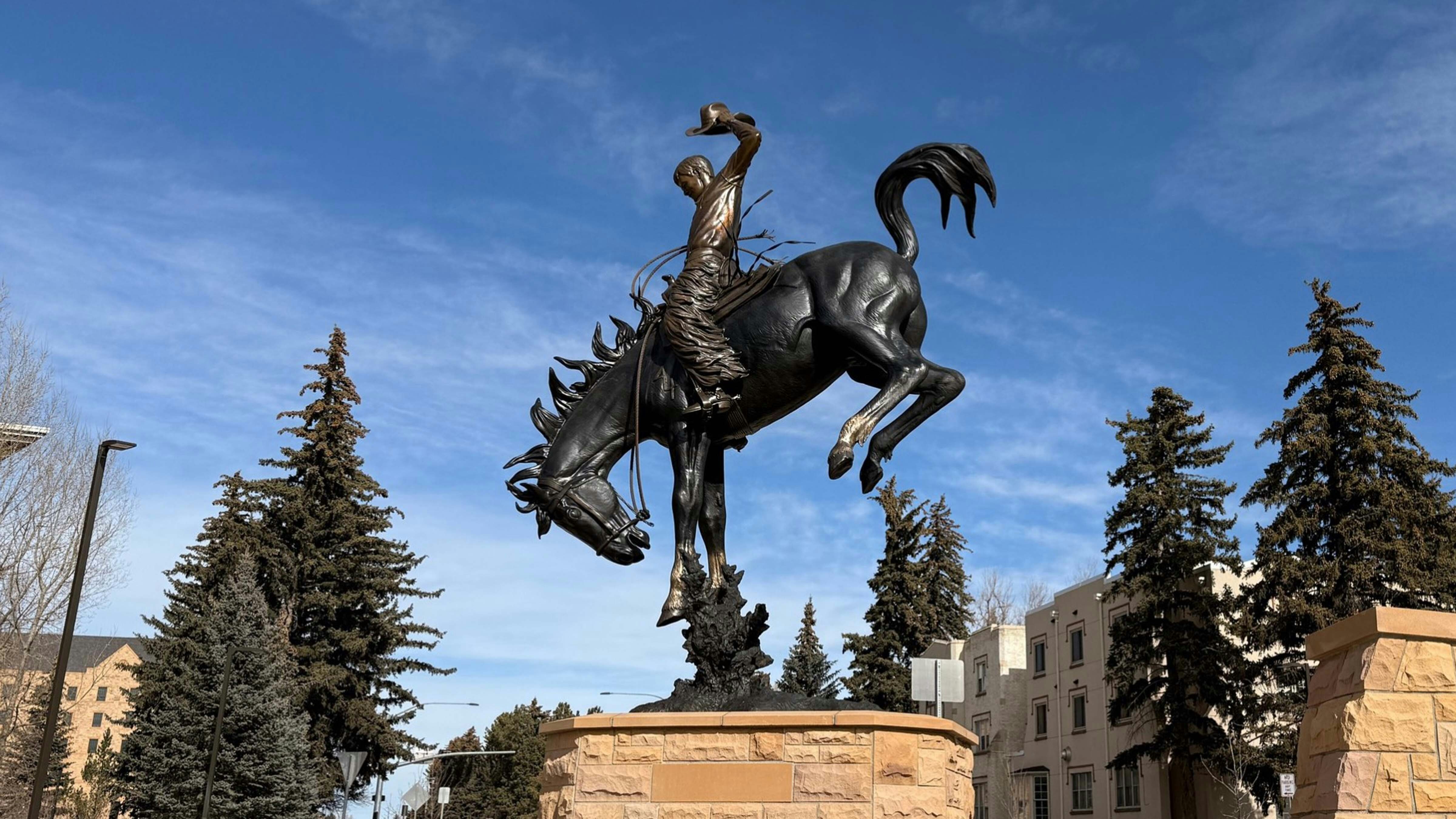CHEYENNE — Local residents Bill Lembke and Susie Degner are going through insurance hell for something completely out of their control.
The couple are rebuilding their home after a truck crashed into it during a freak accident last October, leaving a huge hole in the side of their house and at least $30,000 in damage.
The event happened when a pickup hopped the curb and smashed into their central Cheyenne house, knocking out a sizable portion of their brick wall and leaving a gaping hole into their living room right around the fireplace. The Toyota Tundra had crashed into their home after it was hit by another vehicle, spinning and rolling over three times before crashing into their brick wall and chimney.
Now, they're about to lose their home insurance coverage over what happened.
Who Pays?
Lembke had originally expected the damage from the crash to be covered by the insurance company covering the driver who crashed into their home, but since that driver was not at fault for causing the accident, thatcompany has refused to cover the home damage.
The driver who was at fault in the accident is a transient with no known home address, so State Farm didn’t want to pursue having to get money from that unlikely source, Lembke said.
State Farm Insurance has informed the couple it will drop their home insurance coverage once it expires April 1, but will still pay out the property damages related to the car crash. It will also cover the losses Lembke filed on a separate claim when his work trailer was broken into before the crash in August.
“You can pay them, but if you use it (insurance), that’s a no-no,” Lembke said.
Lembke said it was communicated to him that since he had made two claims in the same year, State Farm was dropping him because the quality of his policy was deteriorating for the company.
“By no fault of my own this is what happens and we’re in a pickle,” Lembke said. “We’re just constantly getting victimized over and over and over for something we didn’t even have any part in.”
A Real Pickle
Lembke said he has been unable to find anyone to fix the home and complete the masonry needed on their brick house due to it being the winter time.
Because he has an open claim for the work, Lembke hasn’t been able to get any new home insurance coverage. This isn’t surprising considering that an insurance company would be taking a large risk by choosing to insure a home that had an outstanding major repair job.
“It doesn’t make sense,” he said. “They (State Farm) should be forced to carry you until the claim is closed because they know they wouldn’t do it themselves. State Farm wouldn’t accept you as a client if you had an open claim on your house. They full-well know they’re screwing me.”
State Farm is legally allowed to take the action it has.
Keiana Holleman, a representative with State Farm, told Cowboy State Daily the company is not allowed to discuss any particular claim or customer’s policy information.
“What I can tell you is that State Farm absolutely values the relationships we have with our customers, and that is why underwriting decisions are never made lightly,” she said.
Holleman said a number of factors are considered when underwriting a homeowners insurance policy such as the location of the property relative to natural hazards, condition of the property, and the customer’s past claim activity and history.
Lembke reached out to the Wyoming Department of Insurance for help, who he said told him they’ve been working on legislation to prevent insurance companies from dropping a customer while they have an open claim, but there are no bills addressing this during the current legislative session.
“They need to do something,” Lembke said.
Even if he’s able to get normal home insurance after the work on his home is complete, Lembke suspects it will cost double what he’s currently shelling out for an extra $500 a month, due to the fact he had to file two claims in one year.
“I can’t afford that,” he said.
He now worries the only insurance he’ll be able to get for his home to avoid a coverage gap is force-placed insurance, which tends to be more expensive than standard home insurance. Force-placed insurance also only covers the property itself, so if the couple’s home were to burn down in the future, only the physical property and none of the possessions inside would be covered for damage. In addition, in that event, only the mortgage company would be reimbursed for the loss of property.
“I would walk away with zero dollars and no home,” Lembke said.
He expects his home mortgage company is going to “flip their lid” when it finds out about his insurance dilemma.
“They’re going to do what it can to protect their interest,” he said.
Lembke is also concerned that he won't be able to sell his home in the future because of a perception that the property has a negative stigma attached to it.
State Of The Industry
The whole purpose of paying for home insurance is to protect oneself from events like what happened to the Cheyenne couple.
The American insurance industry has come under fire in recent years for dropping homeowners coverage in relation to an uptick in natural disasters like wildfires and hurricanes.
According to CBS, about 1,600 policies in a neighborhood devastated by the Palisades Fire in southern California were dropped by State Farm last July, in the midst of a drought-stricken summer, months before the fires ripped through. An analysis of insurance data by CBS News San Francisco last year found that State Farm also dropped more than 2,000 policies in two other Los Angeles ZIP codes.
Isaac Miller, a registered agent with Allstate Insurance in Cheyenne, said acts like these and what happened to the Cheyenne couple are par for the course in his industry these days.
Helping his family and friends out, Miller said, was his whole inspiration for getting into insurance. These days, he’s not so sure he can right the ship, an industry he considers “the great scam of our generation.”
“They’re always moving the goalposts,” he said.
Miller believes the insurance industry has become too monopolized, with far fewer and fewer mom and pop-style insurance companies than what previously existed. As a result, he believes profits are the primary focus for these companies, which is why some have been pulling out entirely from areas like Wyoming, Florida and California that tend to have a higher risk for climatic disaster events.
He suspects many insurance companies are simply relying on algorithms and artificial intelligence these days to determine what insurers should and should not be covered.
“It’s just unfortunate,” Miller said. “It doesn’t matter how sad the story, you’re just a statistic these days.”
Lembke has no hard feelings toward his local State Farm agent Jamison Shefford, who he said went to bat for him with State Farm and helped him file an appeal. The company itself also completely rejected his effort.
Holleman said choosing which risks to underwrite is critical to helping State Farm stay afloat.
“Choosing which risks to write and which ones not to write is critical to State Farm’s effort to maintain the financial stability that allows us to continue to fulfill the promises we have made, and to continue to make new ones,” she said.
Leo Wolfson can be reached at leo@cowboystatedaily.com.









